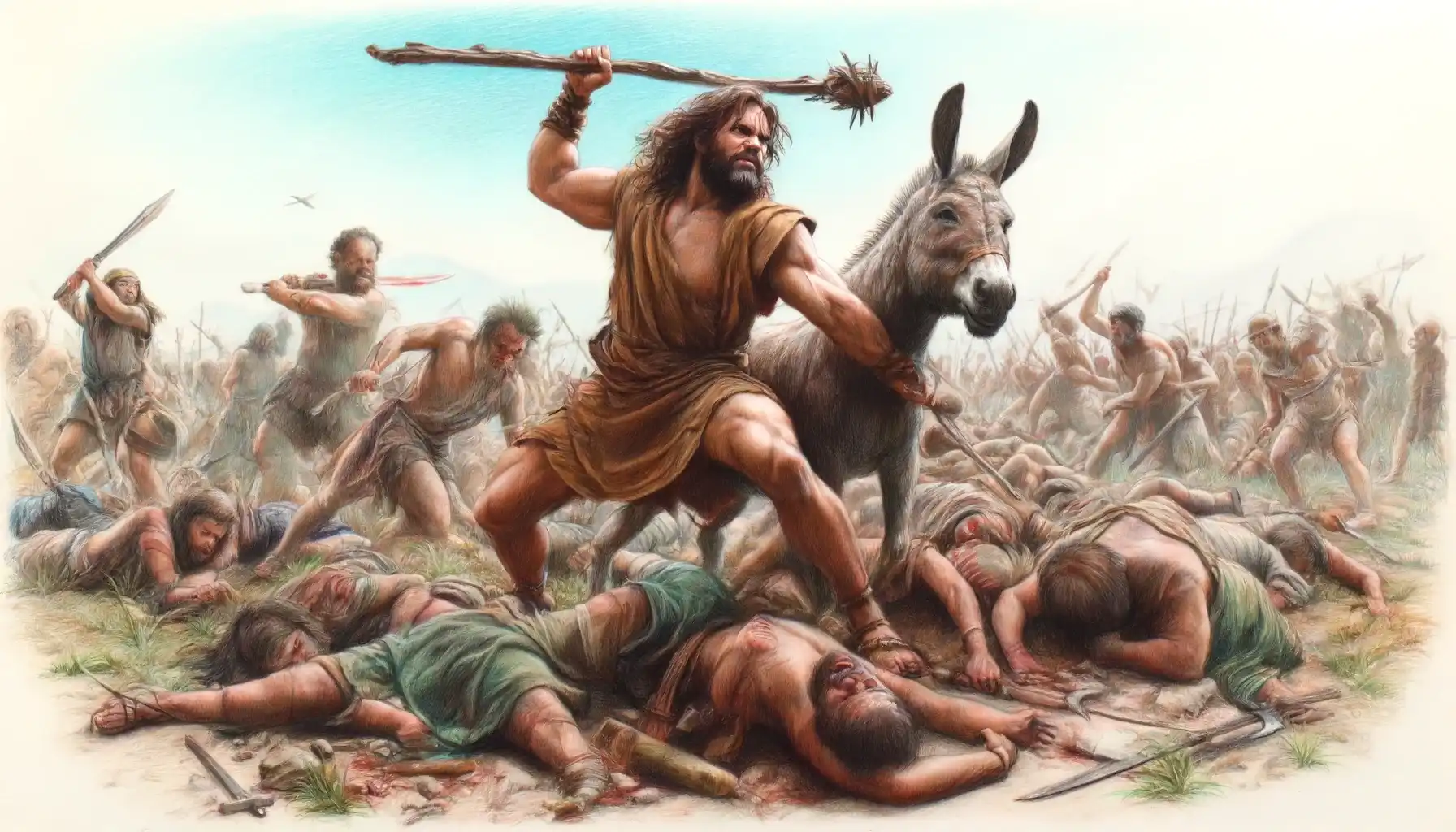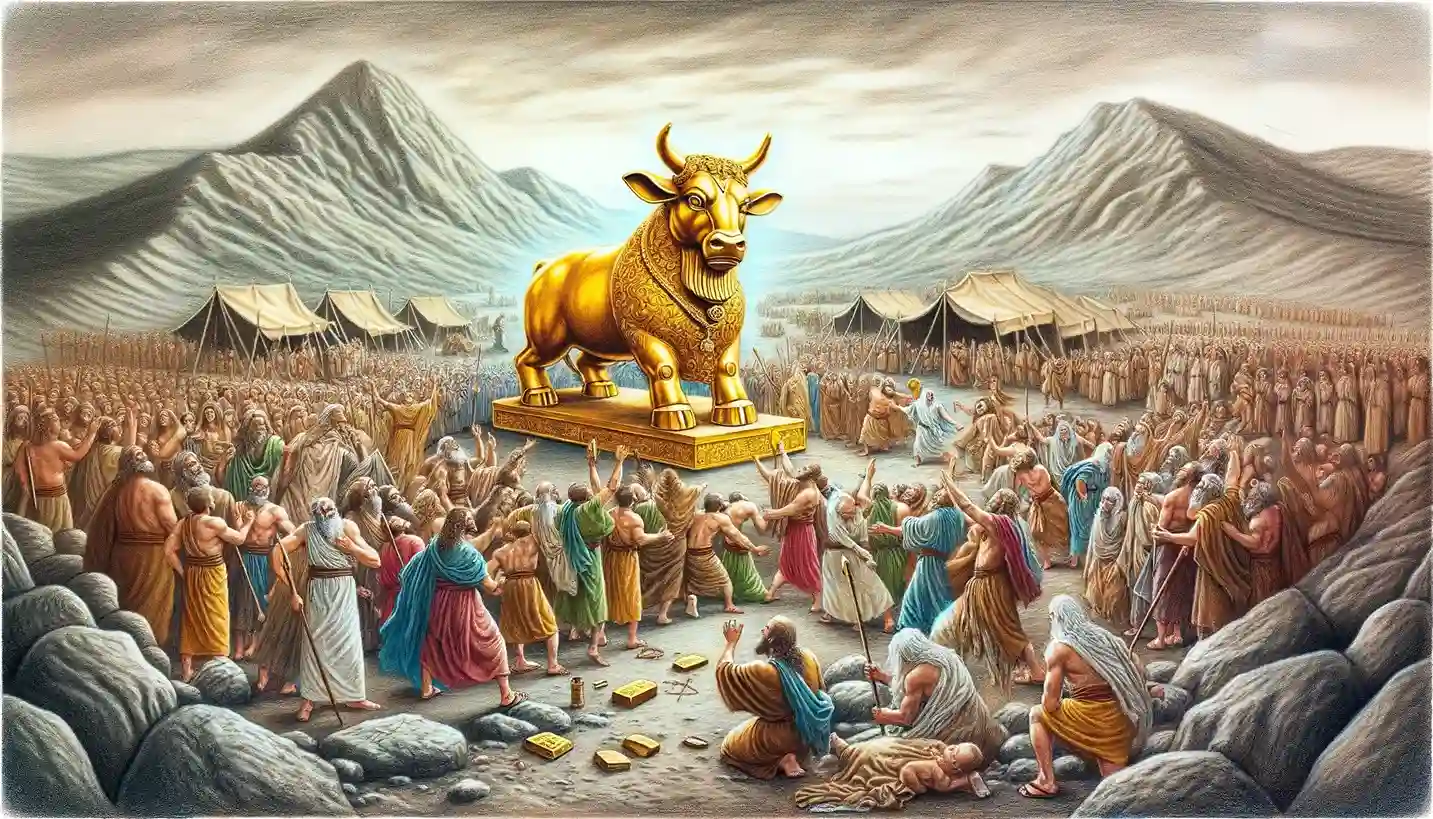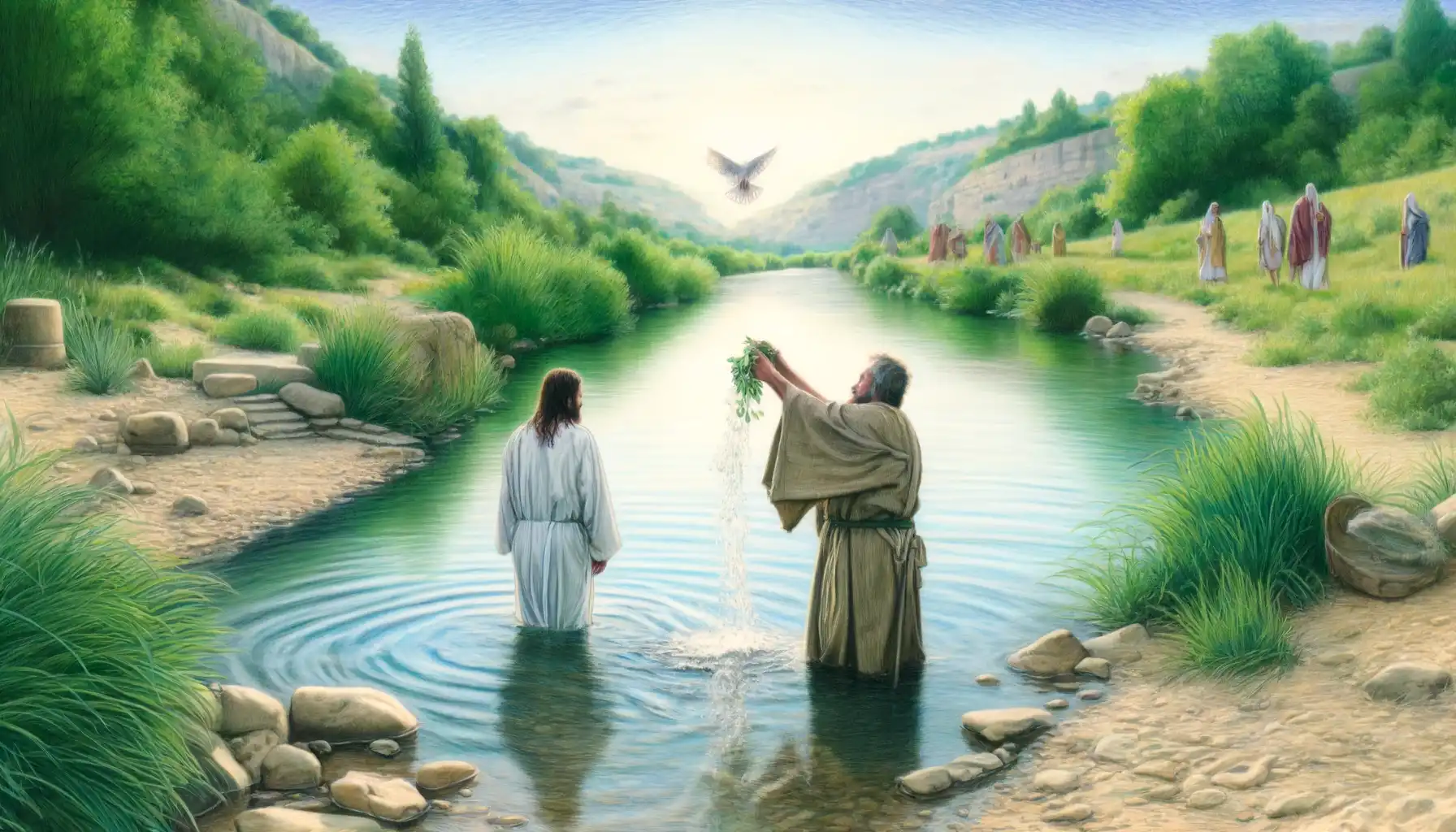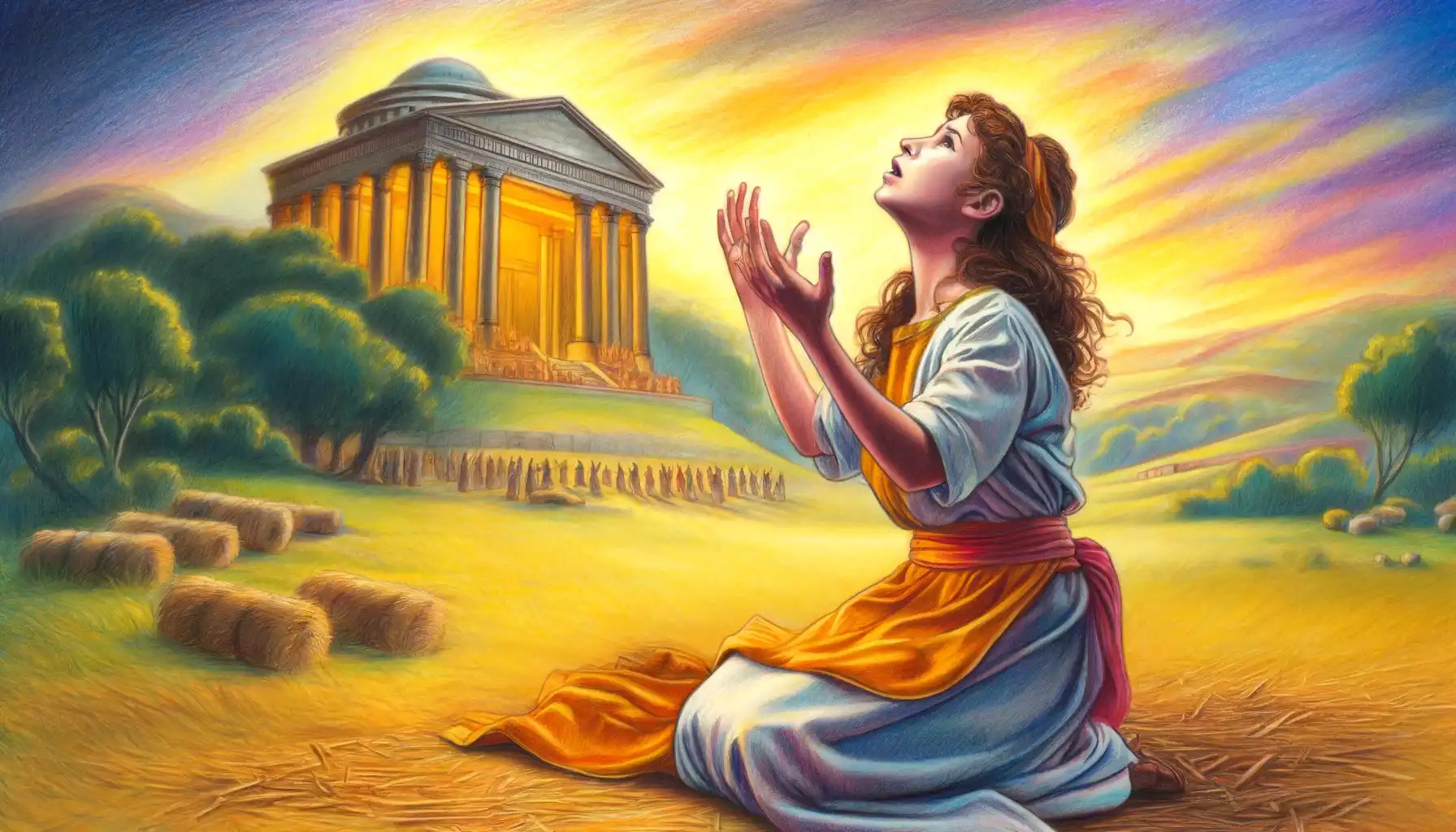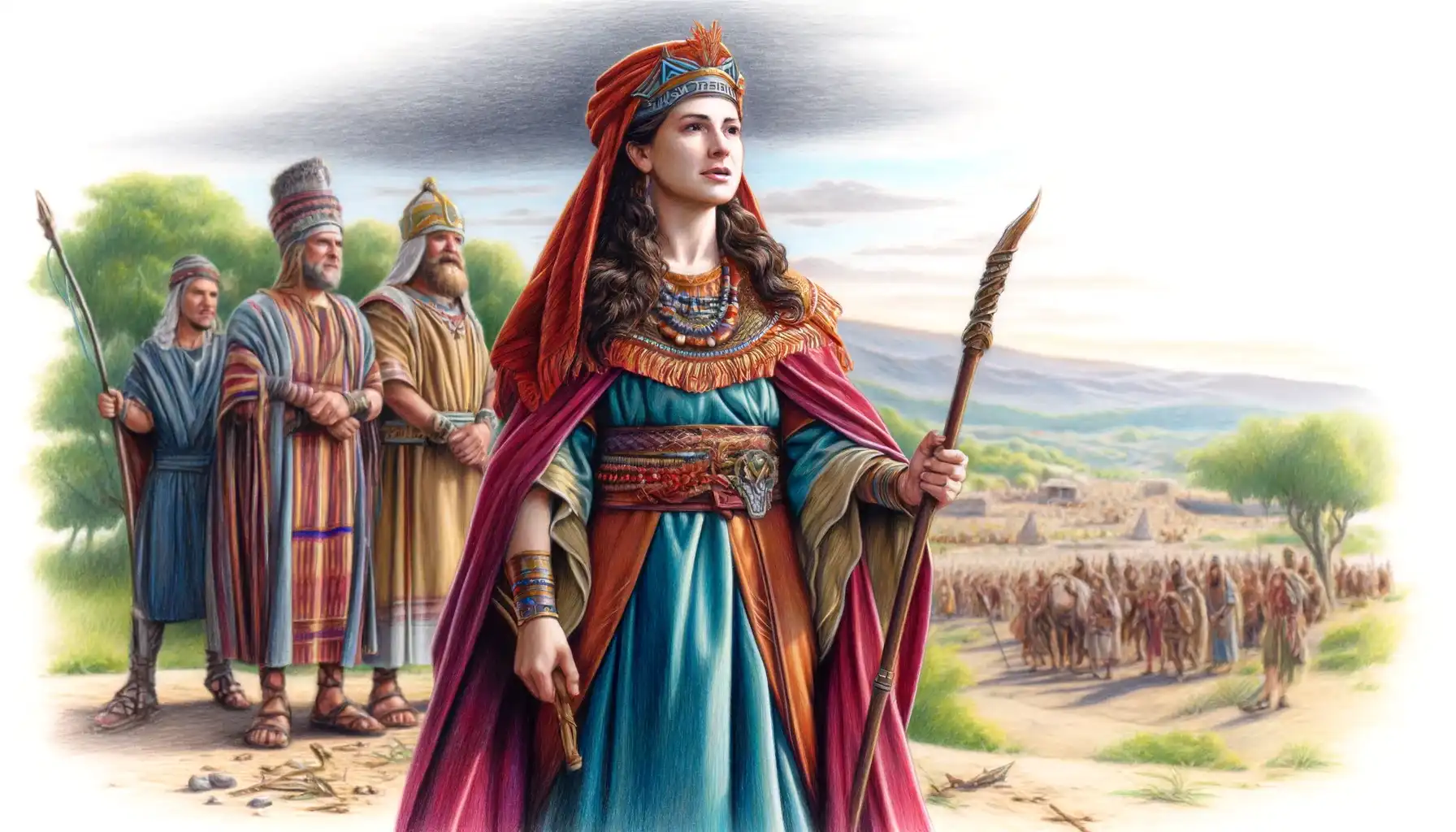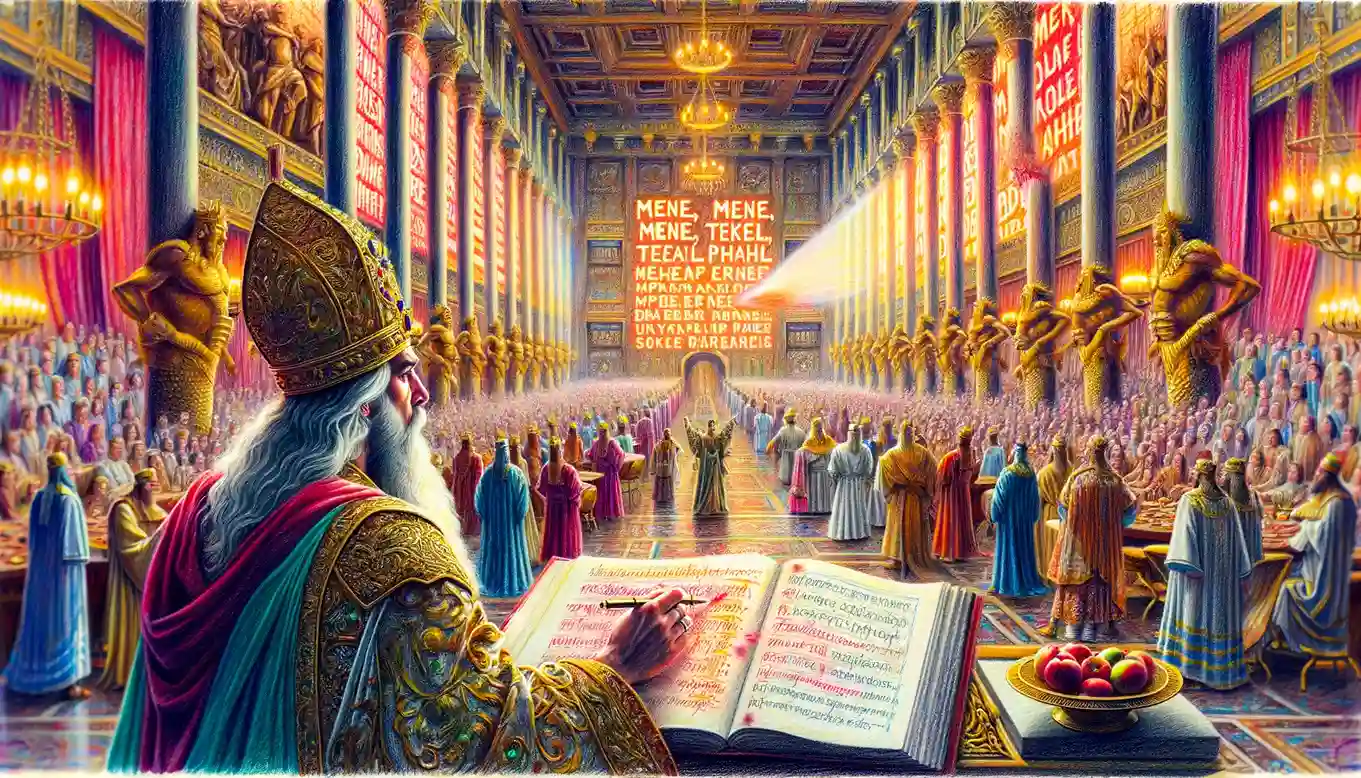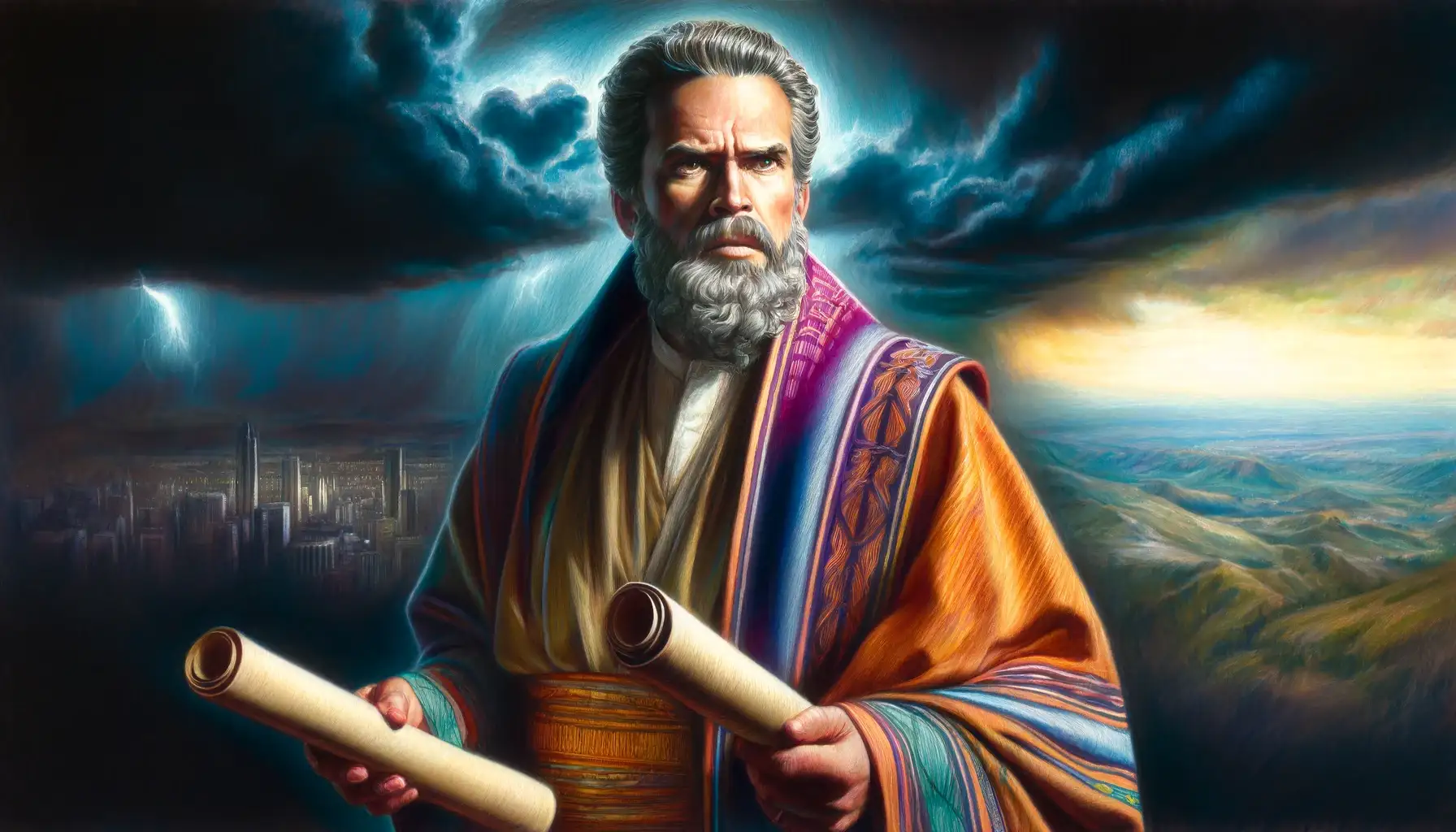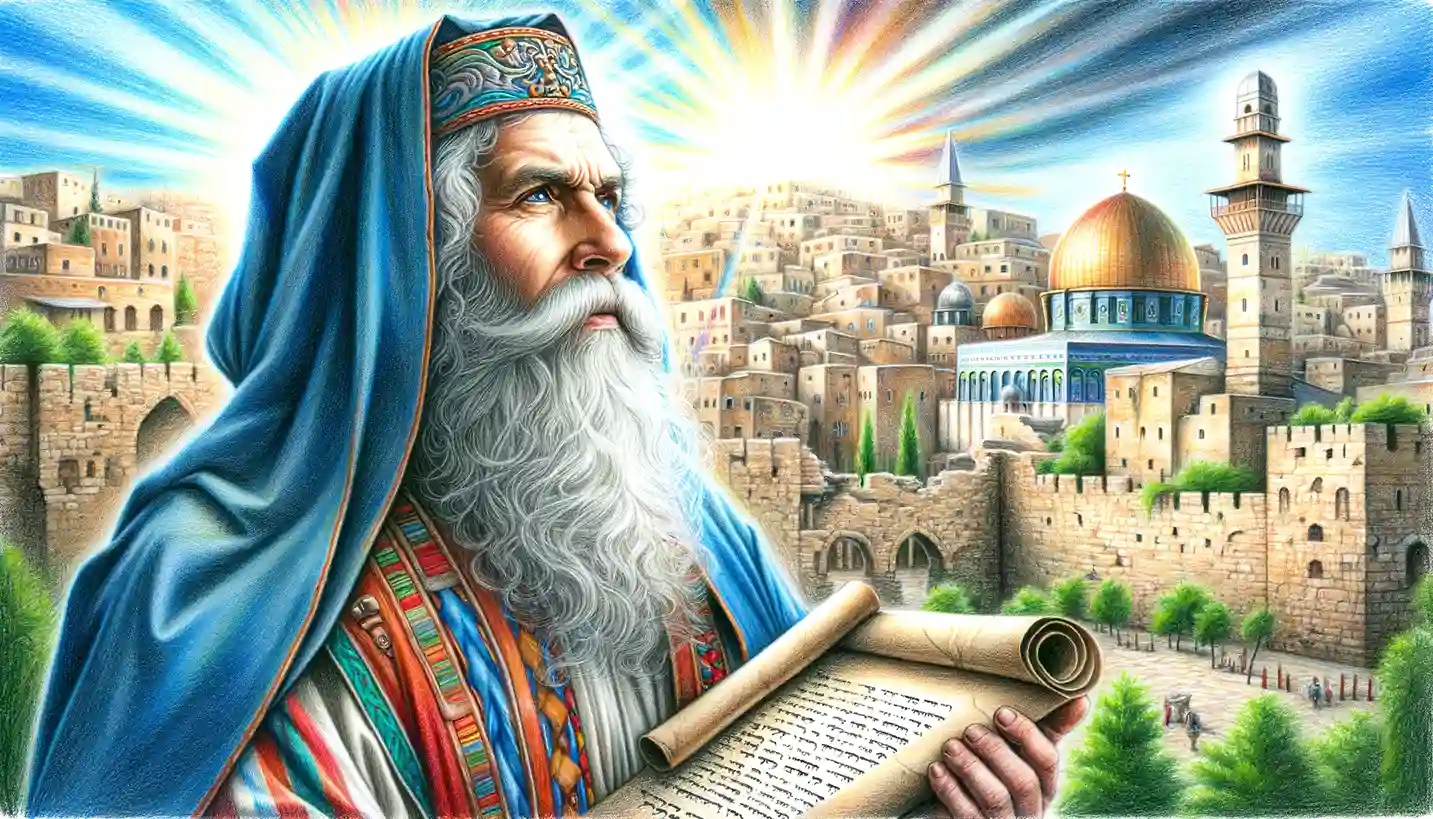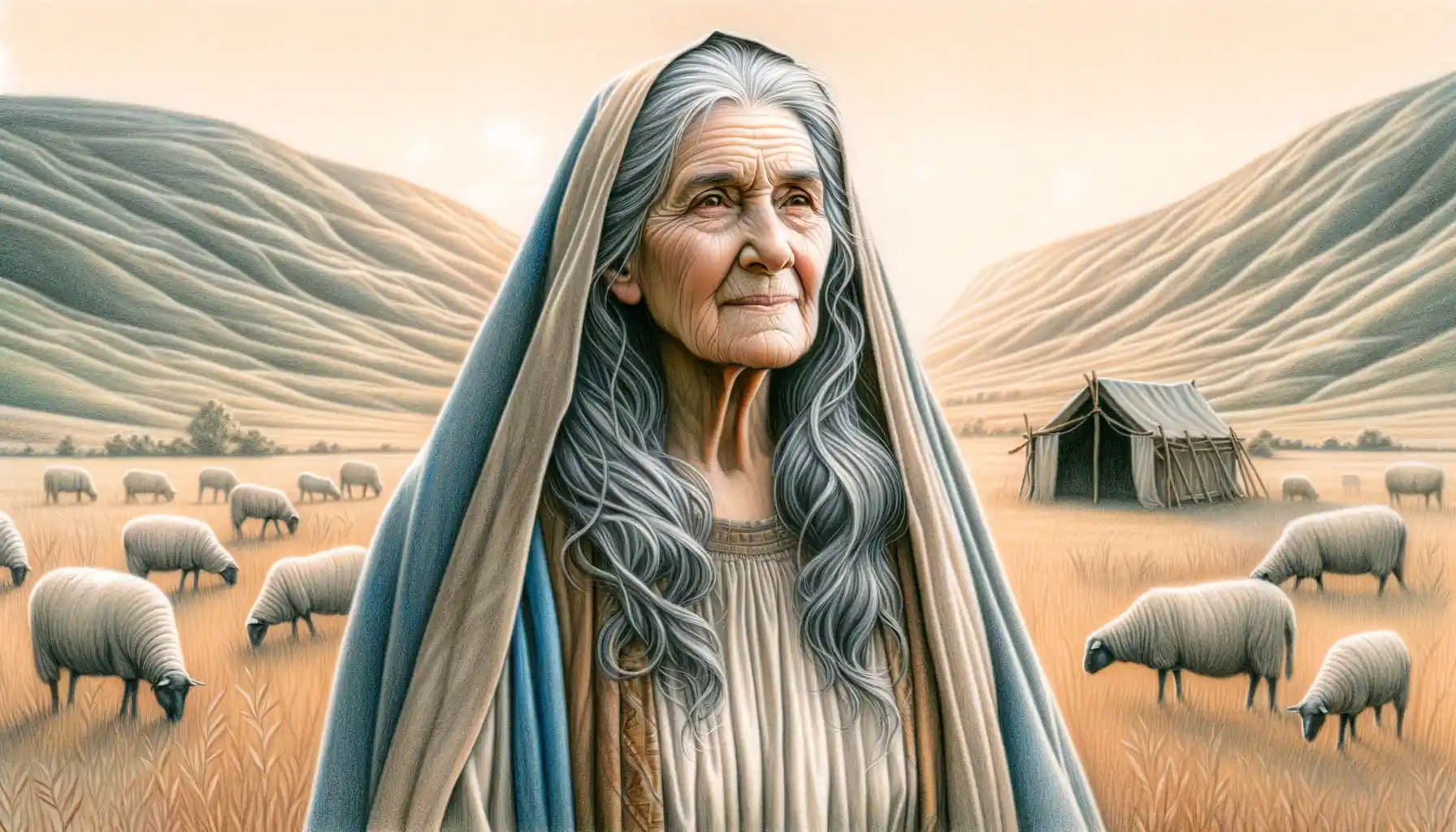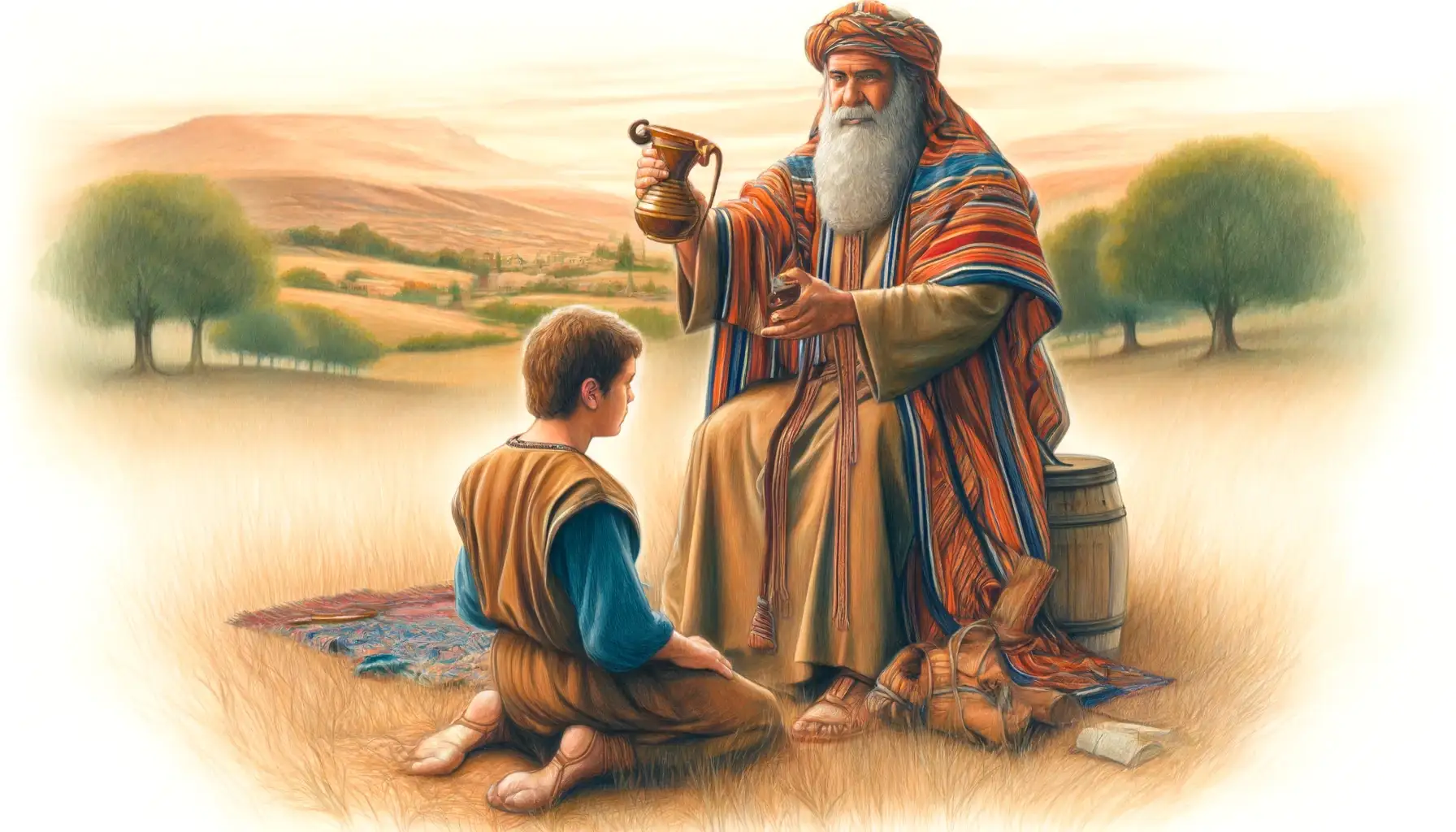Samson, empowered by the Spirit of the Lord, killed 1,000 Philistines with the jawbone of a donkey, demonstrating God’s deliverance of Israel through his supernatural strength.
The Golden Calf Incident, described in Exodus 32, occurred when the Israelites, in Moses’ absence, created and worshiped a golden calf, leading to severe punishment and a reaffirmation of their covenant with God.
The River Jordan is a historically and biblically significant river in the Middle East, known primarily as the site of Jesus’ baptism by John the Baptist, symbolizing the commencement of His public ministry and fulfilling Old Testament prophecies.
Hannah’s prayer in 1 Samuel 2:1-10 is a profound song of thanksgiving and praise to God, offered after the birth of her son, Samuel, expressing deep gratitude and exalting God’s sovereignty and faithfulness.
Deborah, the only female judge in the Book of Judges, was a prophetess and leader who guided Israel to victory against the Canaanites and authored the Song of Deborah, showcasing her courage, faith, and leadership.
During Belshazzar’s feast, a disembodied hand wrote “Mene, Mene, Tekel, Upharsin” on the palace wall, signaling imminent divine judgment and the fall of Babylon, as interpreted by Daniel.
Zephaniah, a prophet during King Josiah’s reign, warned of the impending Day of the Lord, calling for repentance and promising restoration for the faithful remnant.
Zechariah, a prophet during the post-exilic period, received visions of Jerusalem’s restoration and the coming Messiah, providing hope and emphasizing God’s sovereignty.
Sarah, originally named Sarai, was the wife of Abraham and mother of Isaac, whose birth at her advanced age of 90 fulfilled God’s promise and demonstrated her unwavering faith in His plans.
Samuel, a prophet dedicated to God from birth, played a critical role in Israel’s history by serving as a judge and anointing its first two kings, Saul and David.

